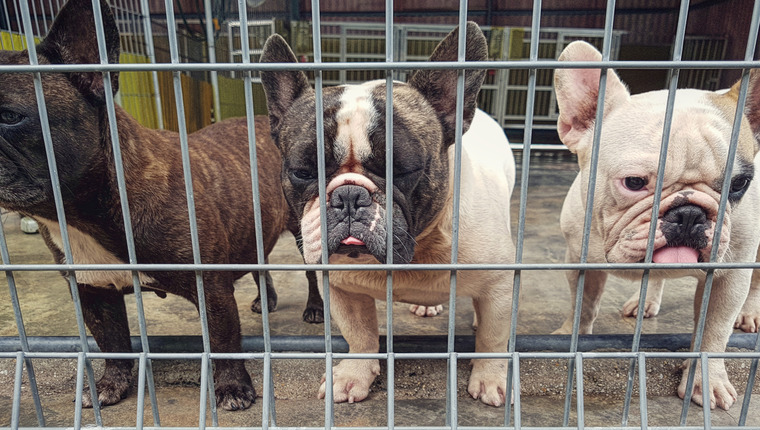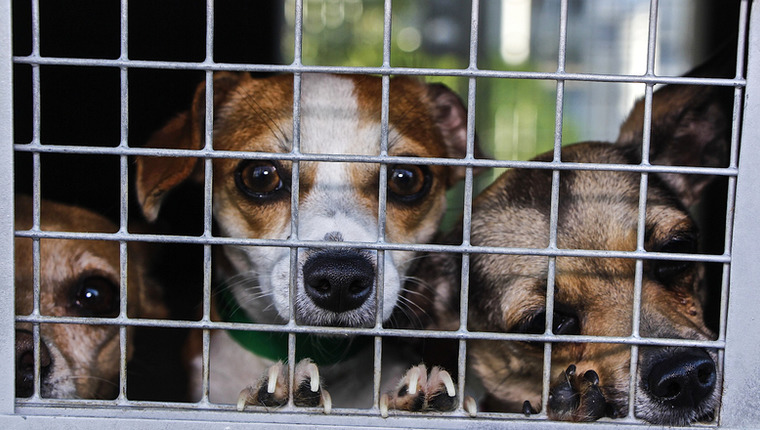
From the BBC, a harrowing report follows investigative reporter Sam Poling as they go undercover into the secret world of extreme dog breeding.
Amazingly, Poling went undercover for months as “Bulldog-loving businessman Stefan Delaney”. During that time, they lurked on Facebook groups for Bulldog and American Bullie enthusiasts. Eventually, “one of the main players…in the world of extreme dog breeding” contacted Polis.
Uncovering a Vast Network of Extreme Dog Breeding
The person Poling talks to is Thomas Rayment. Alarmingly, Poling knows Rayment is a convicted county lines drug dealer. Furthermore, he’d been in prison since 2001, serving a six-year sentence for dealing crack and heroin. How then, she wondered, could he be running a dog breeding operation?
Purportedly, Rayment told Poling he represented the UK arm of Muscletone Bullys UK—an international dog breeding business. Rayment sent Poling two photos from his account. Brandon Blockhead and Kleo—the pair just had a litter of puppies. Both of the dogs are squat with thick, muscular builds. Significantly, both also have their ears cropped. The practice has been illegal in the UK since 2006. Notably, it carries a prison sentence of up to five years.
Eventually, Polis arranges a meeting at a dog fertility clinic. There, she meets not Rayment but Ryan Howard, one of his associates. Howard looks after a group of about 15 dogs. However, he claims to own over 120 through a vast network of ‘co-owns’. Apparently, breeders will get other people to house their dogs, and then pay them a commission from puppy sales. In this way, they can avoid “the scrutiny of licensing authorities”.
Abusive Dog Breeding Can Be Part of a More Insidious Agenda
Polis spoke to Ian Muttitt, a chief inspector with the RSPCA‘s Special Operations Unit, about why gangs have recently delved into dog breeding. Muttitt said these unethical breeding programs have grown over the past five years. Not surprisingly, selling dogs that are difficult to obtain fetches a high price. However, Muttitt also said the breeding programs are sometimes fronts to launder money from more illicit sales.
“It’s anything where illegal money has been obtained. So drugs, firearms, other organized crime,” he said. “It can then be laundered through the sale of these dogs or vice versa.” Insidiously, using dogs also works as a crude form of legal protection, since the penalties and risks are far less severe.
Concludingly, Polis bemoans the “not only huge, but sophisticated” network she’s found. However, as any dog parent would agree, the fight against breeders who compromise dog health for profits must prevail.









